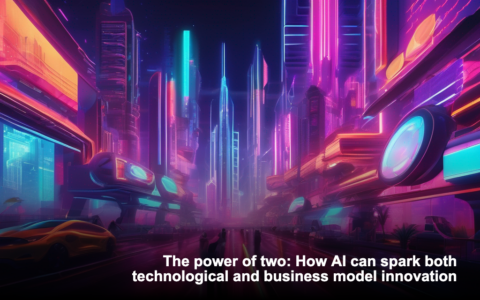I recently came across a good story about pivoting and how hard it can be…
Data / AI / ML
The most powerful disruptions occur when a technology disruption and a business model disruption go hand in hand. This ‘double disruption’ forces incumbents to get up to speed with a new technology and a new business model at the same time. It’s incredibly hard to invest lots of money in a new technology, while simultaneously […]
I recently came across a good story about pivoting and how hard it can be…
Since its launch a few weeks ago, OpenAI’s ChatGPT has captured the imagination of users,…

The most powerful disruptions occur when a technology disruption and a business model disruption go hand in hand. This ‘double disruption’ forces incumbents to get up to speed with a new technology and a new business model at the same time. It’s incredibly hard to invest lots of money in a new technology, while simultaneously giving up on all or significant parts of the legacy revenue. As such, it’s more likely for start-ups to win…
We saw this with the Internet, which came hand in hand with the rise of the ad-supported business model. It was suddenly free for consumers to access content and software products. And that frictionless user onboarding created Google and Facebook/Meta, two gigantic ad platforms.
Then, the move to the cloud came hand in hand with the dominant business model of switching from one-time licensing fees to recurring subscription fees. This switch reduced CapEx for buyers as well as vendor lock-in effects. In every single enterprise software category, SaaS companies won against the on-premise incumbents.
With crypto, the rise of decentralized technology came alongside a token model. Instead of a centralized intermediary that runs a platform and takes a rake for this service, token-powered, decentralized platforms make it possible to distribute the economics among the platform participants.
And now, AI is the next technology disruption to also bring a business model disruption. While people are primarily focused on the technology side of disruption right now (no wonder given the abilities of LLMs that often feel truly magical!), it is worthwhile to think about the potential business model disruption. Sarah Tavel had a great post about the most likely direction of this business model change: Sell work, not software! Currently, most enterprise SaaS companies sell software based on seats, but true AI-native companies will replace human labor and they should sell outcomes, not software.
We are obviously still very early in the AI wave and lots of things will need to get proven out in the coming years. But founders working in this space should not only think about how their product can differentiate itself, but also how they can come up with a business model innovation that will make it hard for incumbents to compete.
News
Happy New Year! The final quarter of 2025 brought meaningful momentum across the V1 portfolio, with founders closing Q4 strong and building toward an even bigger 2026. We’re excited to carry that progress into the months ahead. Before we fully shift our focus to what’s next, here’s a look back at a few highlights and […]
Yet another year has flown by. This past quarter was a busy one, which should…
The V1 family kicked off the new year with fresh energy and no shortage of…